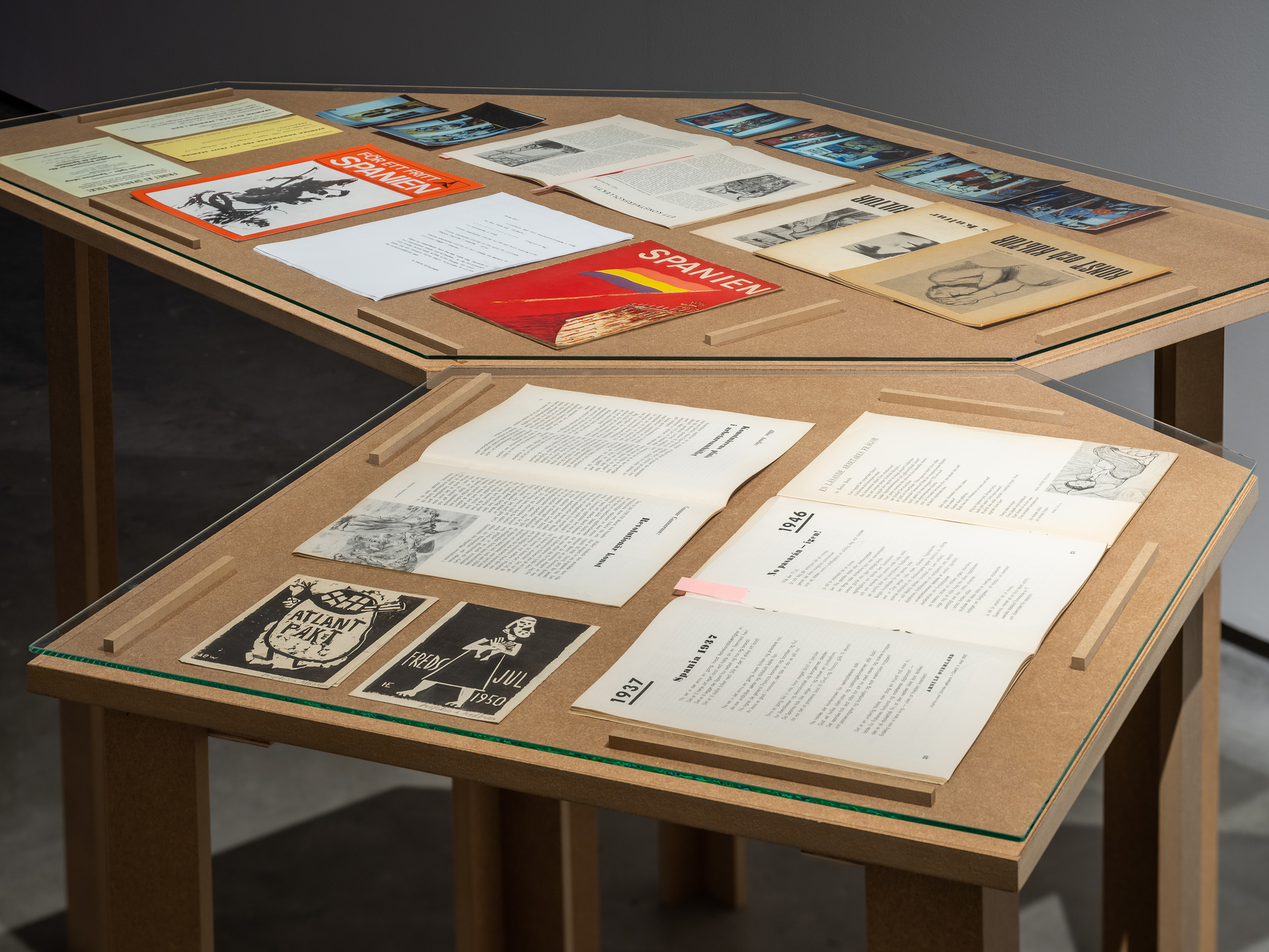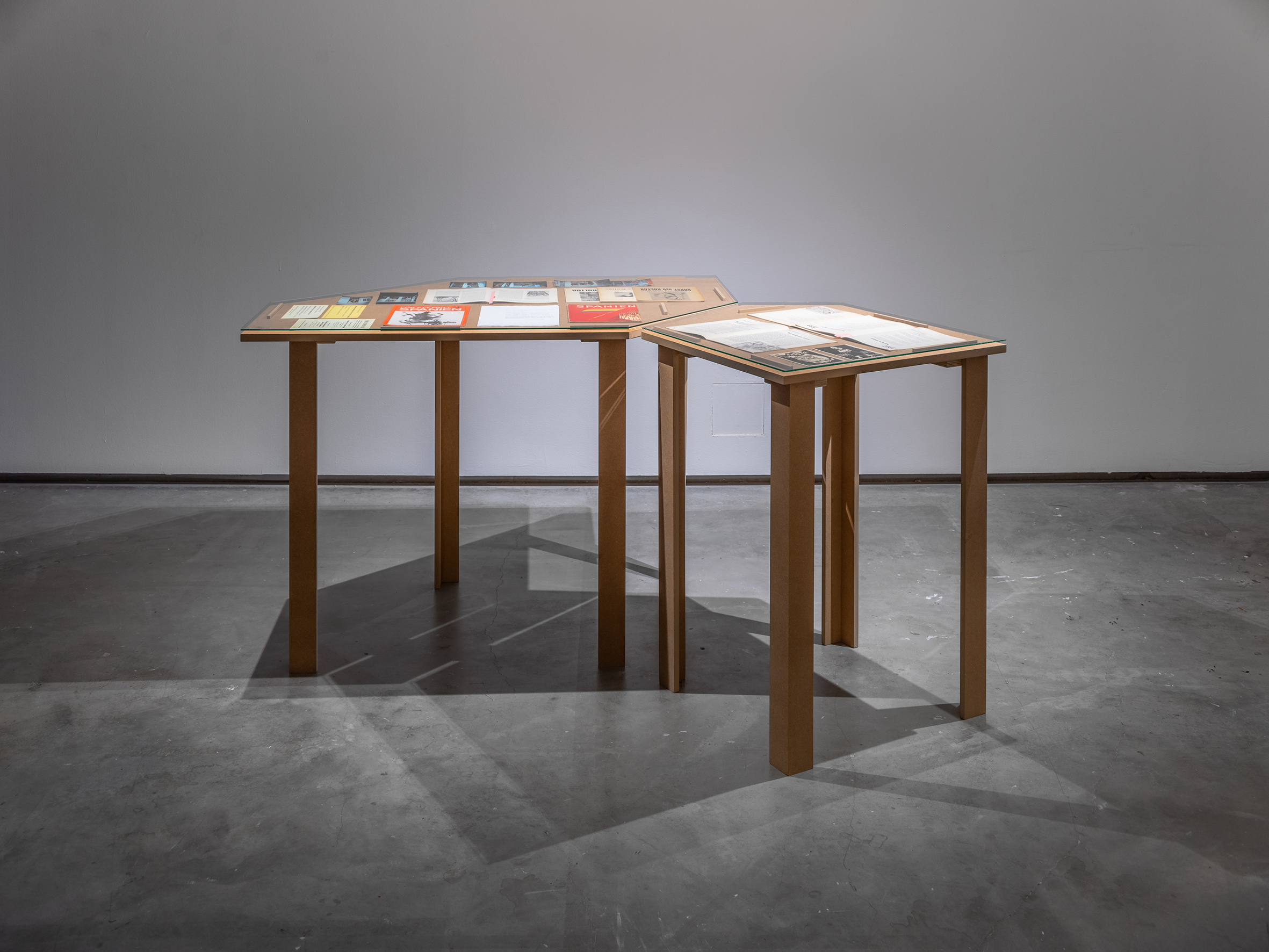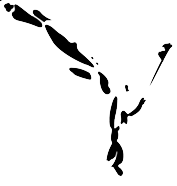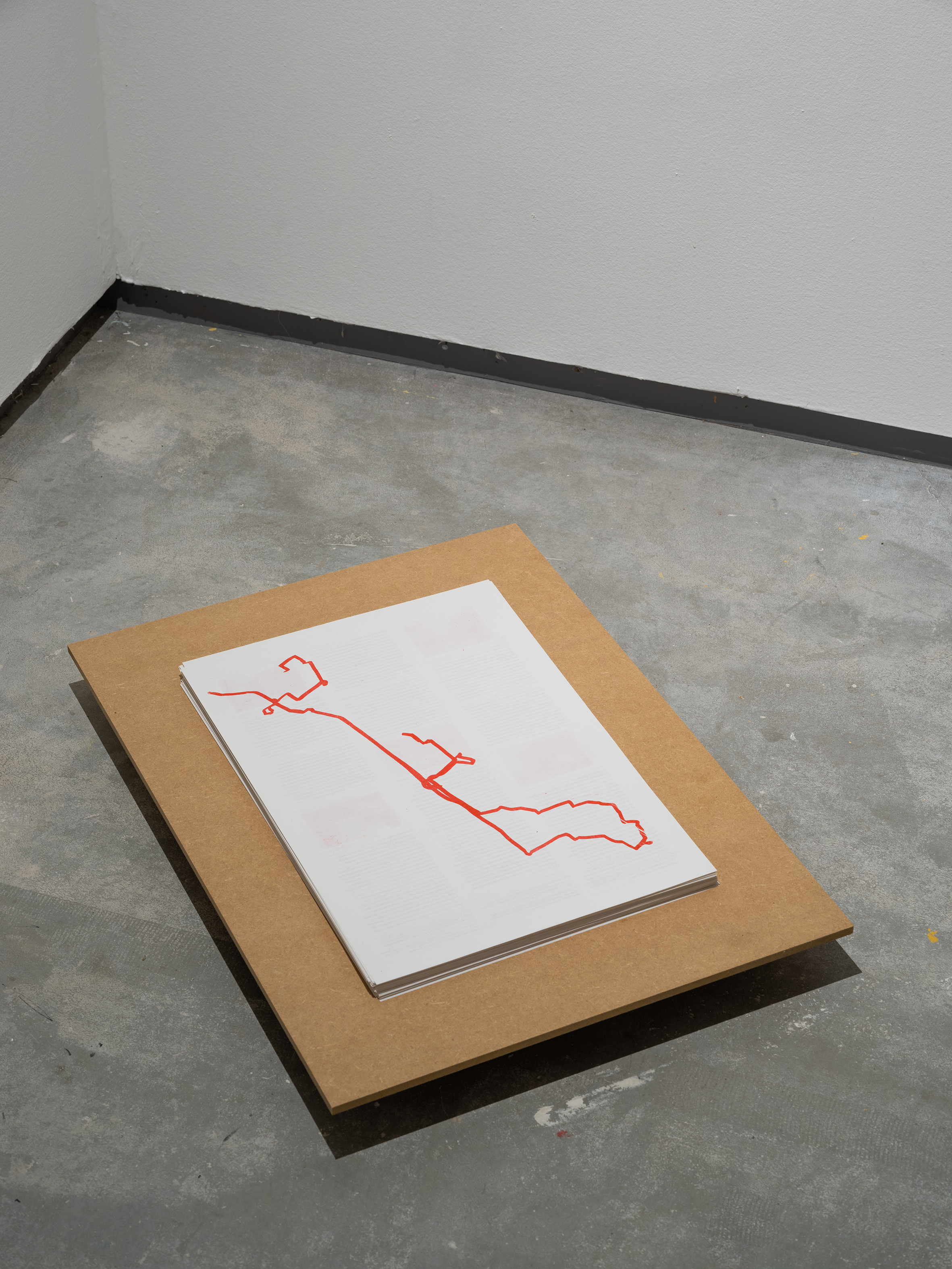





Inhale, exhale, resume
Marabouparken Konsthall, (SE)
Helena Fernández-Cavada in collaboration with Sebastian Dahlqvist.
The exhibition is part of an ongoing study and focuses mainly on collectives and movements operating in Stockholm during the years of 1938–1955. The exhibition raises questions about the history and potential of political imagery, as well as stories of collective organization. But also the boundaries that often regulate these we-formations.
The movements and collectives that the exhibition examine all emerged as reactions to the inaccessible position of art in society, a growing fascism and the acceleration of global capitalism. Today we are experiencing a resurfacing and normalization of fascism and reactionary movements. Moreover, the acceleration of global capitalism has assumed even more violent attributes. Throughout the exhibition, artists Sebastian Dahlqvist and Helena Fernández-Cavada look towards earlier colleagues, their ambitions and failures to find a common ground where to belong. In an attempt to discern what opportunities, or even responsibilities, are left to those who come after.
The title of the exhibition Inhale, exhale, resume suggests a rhythm. A movement of breathing which can both be understood as an interruption of something that has been happening, or precede that which is yet to come. Through both its title and content, the exhibition raises questions about rhythm, movement and breath. What rhythm does artist led movements in particular and society in general follow? How does the surrounding political discourse affect the pace of collective organization?
The exhibition consists of a montage of archival material, new video works, a cartographic exploration of various sites in Stockholm used by previous colleges for collective organizing and a guided tour through the city. The gaps in between the tables on which the archival materials is displayed reminds us that what is presented is and will remain incomplete. That an archive always is the result of selection, and that what has been rejected or left out often is as important as that which is there.
The work 25 år i träda consists of two videos approaching the artist Vera Nilsson's monumental painting Penning contra liv. It was painted during eight months in an old church hall on Glasbruksgatan in Stockholm. The same hall which was used by the collective AKG (The Workers Artists Group) a few years later. The painting, which was made in 1938, is one of the earliest monumental anti-fascist paintings. The aim was to express solidarity with the antifascist movement in their struggle during the Spanish Civil War of 1936–1939. The painting was displayed at a number of art institutions in 1939 and then rolled up and placed on a shelf in a storage room. Here it was laying for 25 years after which it got a permanent place in Sweden's first cultural house, in Skövde.
The research behind the exhibition builds on the private archive and previous research done by the art historian Thomas Millroth. Other archival material has been borrowed from the Jan Myrdal Library and the Swedish Labour Movements Archives and Library. After the end of the exhibition part of the material will be donated to the Swedish Labour Movement Archives and Library. Together with archivists the artists are working to ensure the accessibility for the material making it open to other colleges to continue to build on.
Vandringen
As part of the exhibition, a guided tour is organized based on places in the city that have been crucial to the collective’s and movements that the exhibition makes visible. The walk uses and activates the map available in the exhibition room. Through the walk, historical layers that otherwise remain hidden unfold at the same time as the city's many transformations become visible.
Thanks to
Arbetarrörelsens arkiv och bibliotek, Inter Arts Center, Barbara Brädefors, Cecilia Boström, Helena Braunštajn, Konsthall C, Jonas Jönsson, Tensta konsthall, Skövde Kulturhus, Arbetarrörelsens Kulturfond, Art Lab Gnesta, Lina Lundquist, Thomas Millroth, Myrdalsällskapet, Cecilia Widenheim, Carla Zaccagnini, Magnus Ågren.

